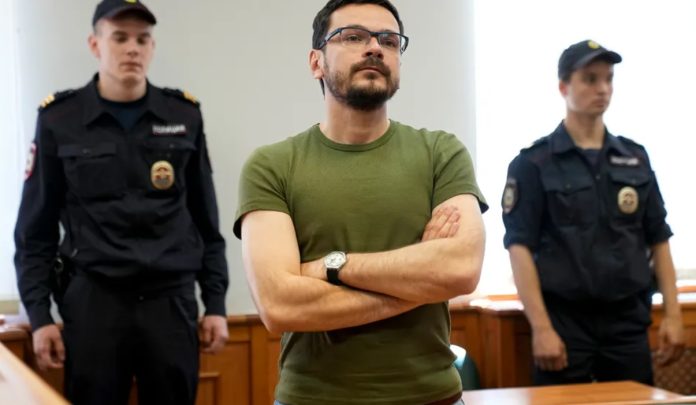У недавньому інтерв’ю для російської служби “Голосу Америки” російський опозиціонер Ілля Яшин висловив своє бачення щодо війни в Україні. Він наголосив, що цей конфлікт, який він називає “кровопролиттям”, торкається не лише України, а й проходить практично через усю Східну Європу.
Однак, що викликало неоднозначну реакцію серед слухачів, Яшин не згадав про численні жертви серед українців. Натомість він підкреслив, що війна впливає і на саму Росію, де людей, за його словами, пригнічують, садять до в’язниць та вбивають за їхню політичну позицію.
Яшин зазначив, що росіяни, які загинули від репресій режиму Володимира Путіна, також є жертвами війни в Україні. Він навів приклади таких людей, як Борис Нємцов, застрелений у 2015 році, Олексій Навальний, що перебуває за ґратами, та Павло Кушнір, поет, затриманий за антивоєнні вірші, який помер у СІЗО в Біробіджані.
Цим опозиціонер прагне донести думку, що жертви путінського режиму не обмежуються лише російськими громадянами, які брали участь у протестах чи висловлювали свої переконання. Він також підкреслив, що ця війна – це конфлікт між тиранією та свободою, між прогресом і регресом, який охоплює не лише Росію та Україну, але й інші країни Східної Європи, зокрема Білорусь.
Ілля Яшин описує війну в Україні як боротьбу між “естетикою смерті” та “цінністю людського життя”. Він підкреслює, що цей конфлікт не є суто між росіянами та українцями, а є протистоянням між двома світоглядами – тиранією і свободою.
Згадуючи Білорусь, Яшин говорить про репресії, які здійснює режим Олександра Лукашенка проти громадян, що прагнуть демократичного вибору. Таким чином, опозиціонер вказує на те, що війна в Україні є лише частиною ширшого протистояння, яке охоплює всю Східну Європу.
Після звільнення з російської в’язниці Яшин заявив, що не збирається брати до рук зброю для боротьби з режимом Путіна. Він підкреслив, що кожен має діяти так, як вважає за потрібне, але його особиста боротьба полягає в іншому.
Коментуючи свої слова щодо можливих переговорів з Україною, Яшин пояснив, що не мав на увазі необхідність поступок з боку України, зокрема територіальних. За його словами, лише Україна має право вирішувати, коли і в якому форматі розпочинати переговори, якщо вони взагалі стануть на порядок денний. Він підкреслив, що будь-які переговори повинні відбуватися на умовах, прийнятних для України.


